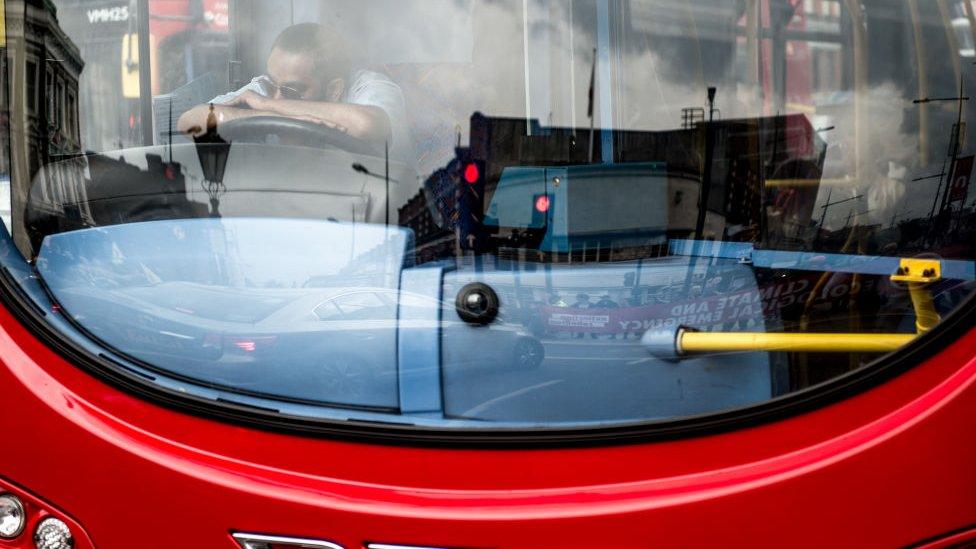Rural transport: Young people 'written off'
- Published
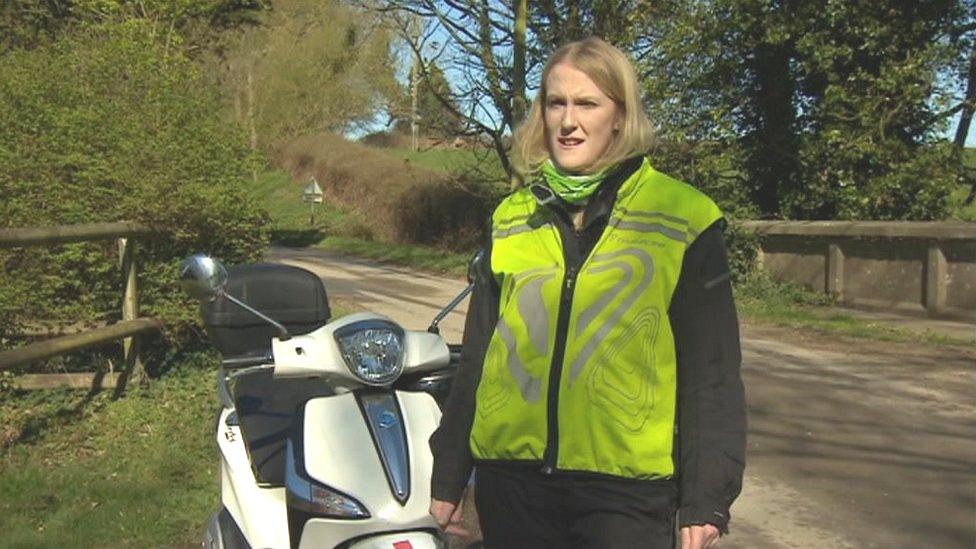
Chloe Jackson says she felt isolated as friends left her village to be closer to work or college
Young people in isolated communities without good public transport are being "written off", campaigners have said.
National figures show more than 3,000 local authority-supported bus services have been lost or reduced in a decade, with fears it may worsen due to Covid.
Young people in rural areas are being left "on their own", the Campaign for Better Transport (CBT) said.
The Department for Transport said it had invested an extra £30m over the past year to improve services.
Chloe Jackson, 25, from Lincolnshire, said she had felt increasingly isolated as friends left her village due to problems getting to work or college.
Ms Jackson, from Aby, near Louth, moved into a shared house nine miles away from home aged 16 due to problems getting to college or her part-time job.
She has since returned to live with her father after struggling to meet living costs.
"When I was growing up here there were 15 or 16 of us, I'm now the only one roughly my age left in the village," she said.
"Anyone my age who wants independence has gone."
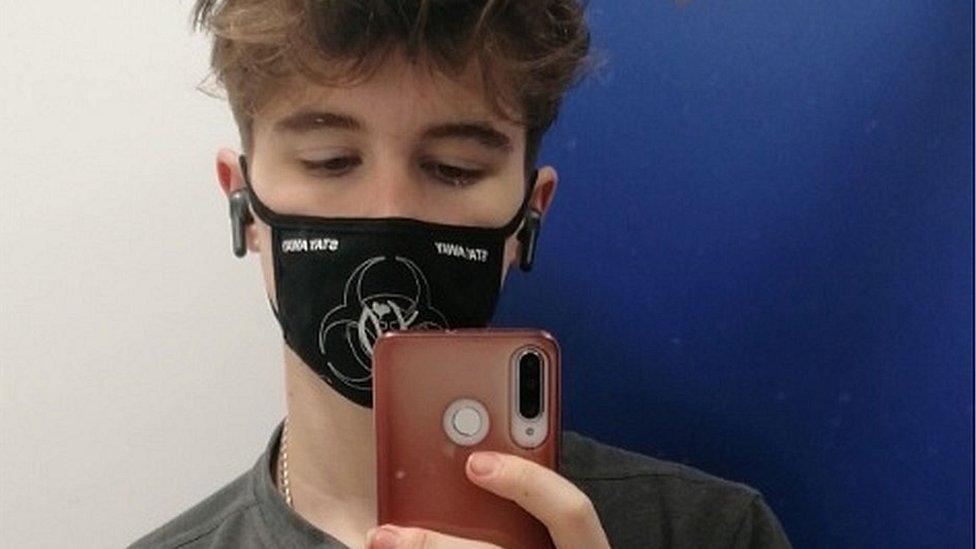
Nathan Tempest has a 30-minute walk to his nearest bus stop, with no early morning or late night services running
Twenty miles south in Friskney, 20-year-old Nathan Tempest regularly walked for 30 minutes to his nearest bus stop, with a six-hour round trip to attend university.
"Sometimes I'd have a six, seven-hour day at uni then I'd be sleeping on buses because I was so tired," he said.
Both Ms Jackson and Mr Tempest have benefited from a social enterprise called Wheels 2 Work Lincolnshire, which gives people basic motorbike training then loans them a moped.
Ms Jackson can now get to her job at a petrol station, with Mr Tempest switching to better-paid night shifts at his job in McDonald's.
The scheme, which was originally funded by Lincolnshire County Council, uses proceeds from its equipment shop and rider training courses to keep itself afloat.
Founder Chris Jones said: "What we try to do is have them on the scheme for six months to a year.
"That enables the bike to come back to us and then it can go back to someone else - it's like a leg-up for them when they're starting up with whatever they're doing."
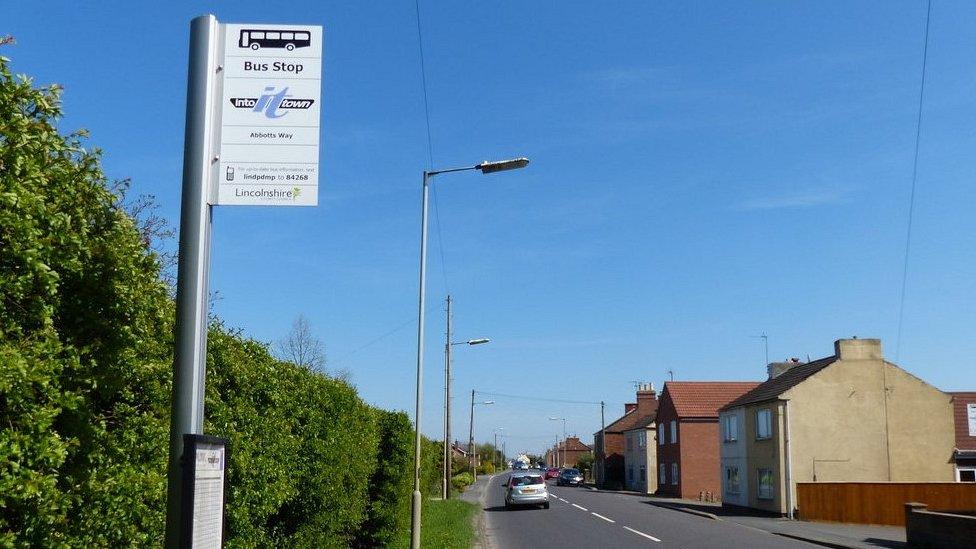
The Campaign for Better Transport is calling for public transport which is greener, more affordable and easier to use
Norman Baker, from the CBT, said: "It seems that we're writing these people off - unless you live in a big town with a good bus or train service, you're expected to have a car.
"[Nationally] a third of people don't have cars, even higher amongst those on low incomes and quite high amongst those in rural areas.
"As a society, we're saying to those people, you're being left on your own to make the best of it."
Ms Jackson and Mr Tempest describe having their own forms of transport as a lifeline, but said more needs to be done to help other young people who are too young to drive or cannot afford a car.
"I can go anywhere now and that's made it a lot easier, I like living in Aby because I can go for a walk but you can't live here without transport," Ms Jackson said.
"It would be too much hassle to work where I do if I didn't have the bike."
A Department for Transport spokesperson said: "We recognise the importance of transport for rural areas, which is why we've invested an extra £30m over the past year to improve current services and restore ones that have been lost.
"This is in addition to our £3bn National Bus Strategy, the biggest shake-up of the country's bus network in generation, which will deliver more frequent services and simpler fares for thousands of passengers around the country including in rural areas."

ENGLAND'S ELECTIONS: THE BASICS
What elections are happening? On 6 May across England millions of people will be voting for new councillors, mayors and police and crime commissioners. Register to vote here, external.
Why does it matter? When political parties win control of a council, they decide policies for your area which could affect services ranging from social care to rubbish collection. Read on what councils do.
How do I vote? Not all councils are up for election, and not every area has a mayor, but everyone in England will be voting for someone in the their local area - find yours here.


Follow BBC East Yorkshire and Lincolnshire on Facebook, external, Twitter, external, and Instagram, external. Send your story ideas to yorkslincs.news@bbc.co.uk, external.
Related topics
- Published21 May 2021
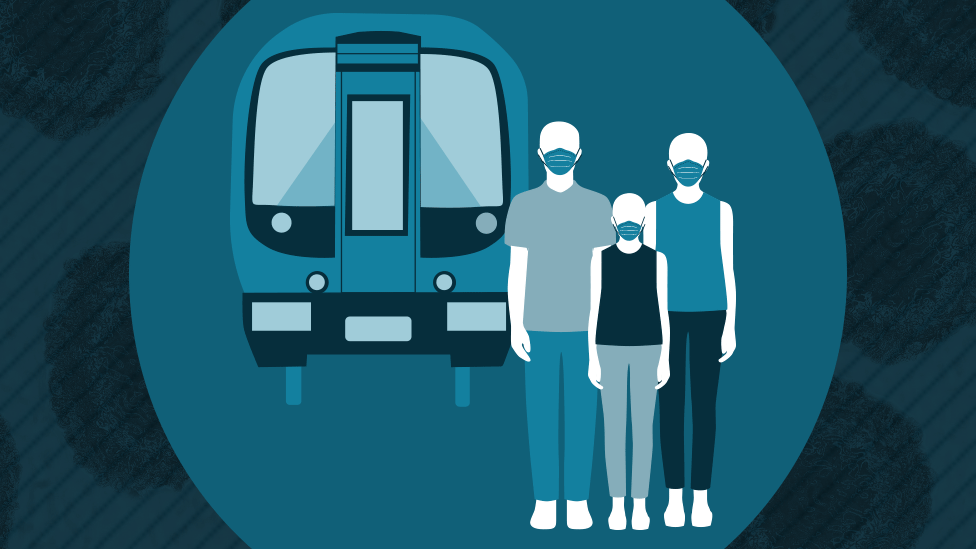
- Published15 March 2021
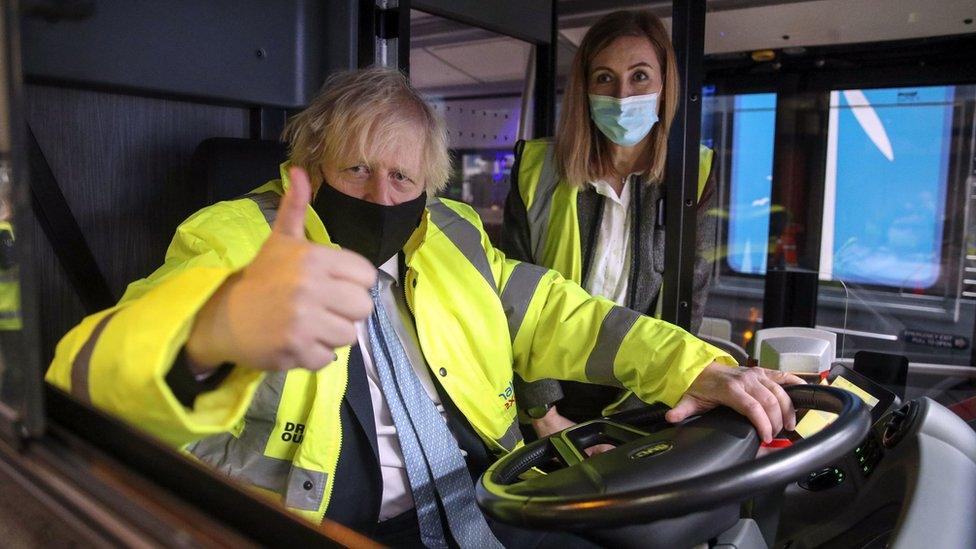
- Published15 March 2020
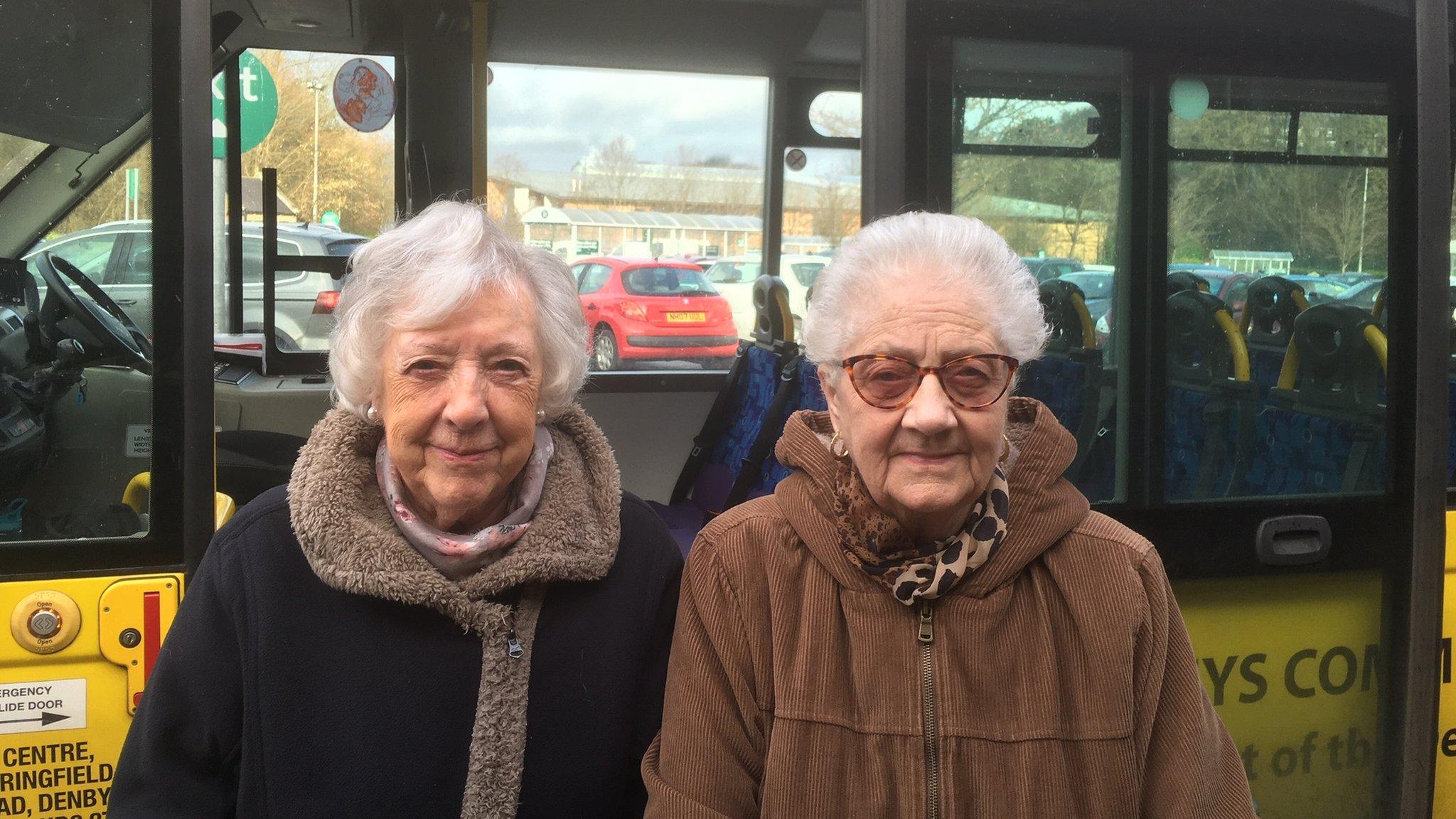
- Published25 October 2019
